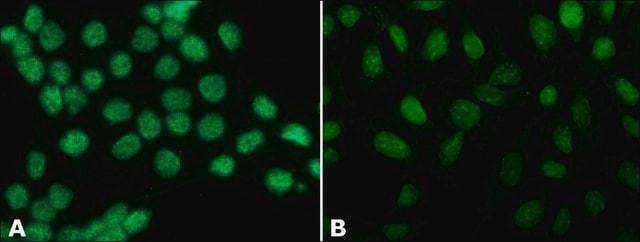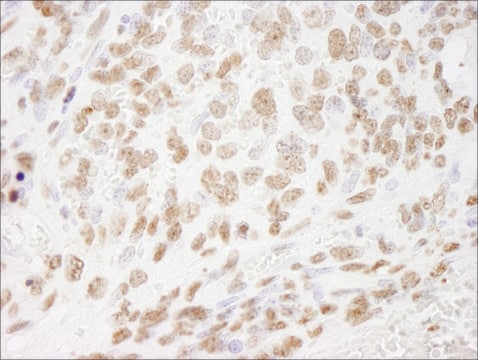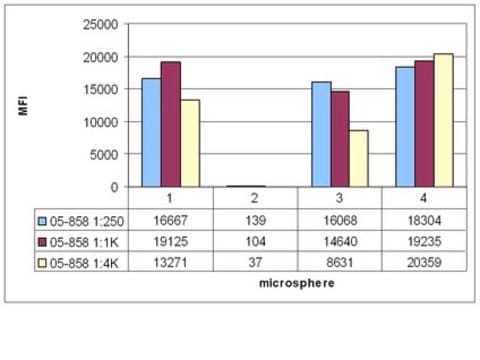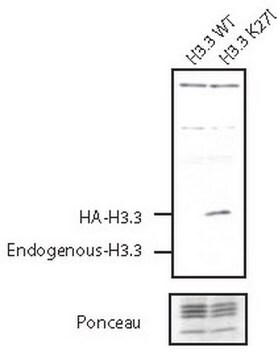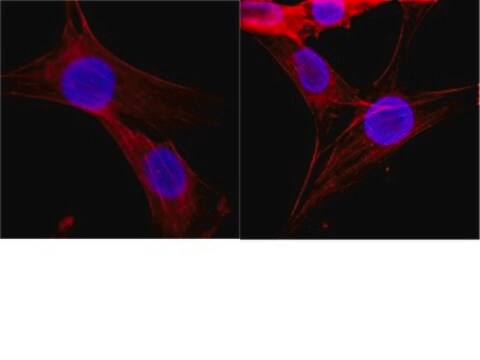06-755
Anti-Histone H3 Antibody
0.5 mg/mL, Upstate®
Synonym(s):
Histone H3.1t, H3/t, H3t, H3/g
About This Item
ICC
IP
WB
immunocytochemistry: suitable
immunoprecipitation (IP): suitable
western blot: suitable
Recommended Products
biological source
rabbit
Quality Level
antibody form
affinity isolated antibody
antibody product type
primary antibodies
clone
polyclonal
purified by
affinity chromatography
species reactivity
rat, mouse, human
manufacturer/tradename
Upstate®
concentration
0.5 mg/mL
technique(s)
ChIP: suitable
immunocytochemistry: suitable
immunoprecipitation (IP): suitable
western blot: suitable
NCBI accession no.
UniProt accession no.
shipped in
wet ice
target post-translational modification
unmodified
Gene Information
human ... H3C1(8350)
mouse ... H3C1(360198)
rat ... H3C1(679994)
General description
Specificity
Immunogen
Application
Immunoprecipitation Analysis: 10 µg from a representative lot immunoprecipitated Histone H3 from 500 µg of HeLa acid extract. Immunoprecipitated sample was then subjected to Western Blotting using 0.5 µg/mL of the same antibody.
Chromatin Immunoprecipitaton: A representative lot from an independent laboratory immunoprecipitated Histone H3 from plant chromatin (Ng, D. W., et al. (2006). Plant Cell. 18(1):119-132.).
Epigenetics & Nuclear Function
Histones
Quality
Western Blotting Analysis: 0.5 µg/mL of this antibody detected Histone H3 in 10 µg of HeLa acid extract.
Target description
Physical form
Storage and Stability
Analysis Note
HeLa acid extract
Legal Information
Disclaimer
Not finding the right product?
Try our Product Selector Tool.
Storage Class Code
12 - Non Combustible Liquids
WGK
WGK 1
Flash Point(F)
Not applicable
Flash Point(C)
Not applicable
Certificates of Analysis (COA)
Search for Certificates of Analysis (COA) by entering the products Lot/Batch Number. Lot and Batch Numbers can be found on a product’s label following the words ‘Lot’ or ‘Batch’.
Already Own This Product?
Find documentation for the products that you have recently purchased in the Document Library.
Customers Also Viewed
Our team of scientists has experience in all areas of research including Life Science, Material Science, Chemical Synthesis, Chromatography, Analytical and many others.
Contact Technical Service

